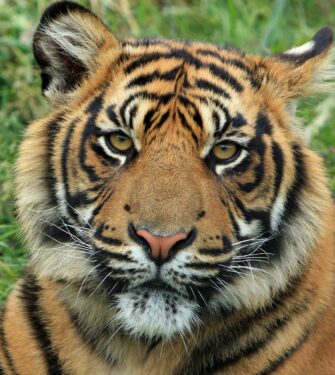
April 4, 2020
Last month, millions of Americans tuned in to watch Tiger King, the popular Netflix documentary series that uncovered the seedy underbelly of the roadside zoo industry. While the majority of viewers were captivated by the ever-churning personal drama surrounding the Greater Wynnewood Exotic Animal Park in Oklahoma and Big Cat Rescue in Florida, the welfare of the animals these facilities promised to protect was a footnote of the series, at best.
For several years, lawmakers have been trying, albeit unsuccessfully, to pass legislation that would limit the unnecessary exposure of wild animals to the public for financial profit, which is a major form of income for roadside attractions such as the G.W. Exotic Animal Park. These parks will offer the public opportunities to “play with” or pet tiger or lion cubs for a fee (sometimes hundreds of dollars). Once the cubs are grown, they are no longer profitable to the facilities, so they often sell them to other zoos, sell them on the black market, or just euthanize them. Read more about the exotic pet trade.
U.S. Representative Mike Quigley (D-IL) introduced H.R. 1380, or The Big Cat Public Safety Act of 2019, which would impose more restrictions on the trade of big cats such as tigers, lions, cheetahs, and cougars, as well as restricting direct contact between the public and these wild animals. While little has been accomplished with the bill over the last six months, Rep. Quigley is hoping that this documentary will force this crucial legislation into the limelight, according to this recent news article.
Take Action: H.R. 1380, as well as its twin bill in the Senate–S. 2561–is still in committee and waiting to be voted on as a whole. Please urge your legislators to support The Big Cat Public Safety Act today!
